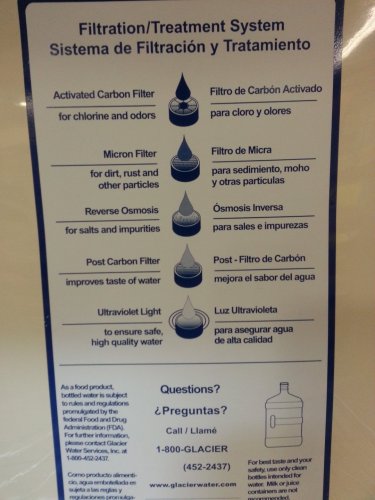trickedoutbiker
Avid Member
I did a bit of research (not a whole lot) and was trying to figure out the difference between Distilled water and Reverse Osmosis water. I know that with distilled, they boil it over and over to evaporate it over and over which separates the water from the minerals. Reverse osmosis uses a semi-permeable membrane that allows the fluid being purified to pass through while blocking the present contaminants.
So... this is what I'm wondering.... I know that distilled water doesn't leave any mineral traces AT ALL when you spray it on things over and over, but what about RO water? Does it leave any traces at all? I've seen so many things that say to use distilled water, from humidifiers to misters to diffusers, and lots of other things. But I haven't seen anything mention RO water. Typically, when something mentions to use distilled water, it is because distilled water won't clog up nozzles on misters and things of the such. What about RO water.... will it clog nozzles at all, even if it takes it 5 years to do so? And does it have ANY minerals in it at all, or is it TOO pure like DI water? I'm partially confused on how that one works...
Reason I am asking is because I buy distilled water, which is 86 cents a gallon at Kroger. They also sell purified water there (I'm pretty sure Purified and RO are the same thing.....) and I'm pretty sure that water is cheaper. So I was wondering if I could use it and still be good? From what I understand, lots of ppl use RO and have no problems but I wanted to be sure about it.
Another reason I'm asking is because the cage I planned to get in a couple months is the Large Clear Sided Cage from Dragon Strand.
http://dragonstrand.com/product/large-clear-side-enclosure/
"The clear PVC material may be cared for much like acrylic. Use RO or distilled water as mineral spots will block your clear view inside the cage. When cleaning the clear panel use RO or distilled water and a soft cloth towel. Do not use wood based products such as paper towels. Although the clear PVC is not as prone to scratch as acrylic, it is still not as resistant as glass."
I don't ANY mineral dust being built up in my cage. Would make it look not as good. My dripper is tap water, put through a filter, and with ReptiSafe added. But as for my mister I will be using..... I can't decide if RO or Distilled would be the cheaper/best option. I mean, aren't they like the EXACT same thing, with the only difference being, how it got made?
Someone chime in and let me know please. I mean I'm 99.9% sure I know the answer to my own question, I just need an opinion I guess.
So... this is what I'm wondering.... I know that distilled water doesn't leave any mineral traces AT ALL when you spray it on things over and over, but what about RO water? Does it leave any traces at all? I've seen so many things that say to use distilled water, from humidifiers to misters to diffusers, and lots of other things. But I haven't seen anything mention RO water. Typically, when something mentions to use distilled water, it is because distilled water won't clog up nozzles on misters and things of the such. What about RO water.... will it clog nozzles at all, even if it takes it 5 years to do so? And does it have ANY minerals in it at all, or is it TOO pure like DI water? I'm partially confused on how that one works...
Reason I am asking is because I buy distilled water, which is 86 cents a gallon at Kroger. They also sell purified water there (I'm pretty sure Purified and RO are the same thing.....) and I'm pretty sure that water is cheaper. So I was wondering if I could use it and still be good? From what I understand, lots of ppl use RO and have no problems but I wanted to be sure about it.
Another reason I'm asking is because the cage I planned to get in a couple months is the Large Clear Sided Cage from Dragon Strand.
http://dragonstrand.com/product/large-clear-side-enclosure/
"The clear PVC material may be cared for much like acrylic. Use RO or distilled water as mineral spots will block your clear view inside the cage. When cleaning the clear panel use RO or distilled water and a soft cloth towel. Do not use wood based products such as paper towels. Although the clear PVC is not as prone to scratch as acrylic, it is still not as resistant as glass."
I don't ANY mineral dust being built up in my cage. Would make it look not as good. My dripper is tap water, put through a filter, and with ReptiSafe added. But as for my mister I will be using..... I can't decide if RO or Distilled would be the cheaper/best option. I mean, aren't they like the EXACT same thing, with the only difference being, how it got made?
Someone chime in and let me know please. I mean I'm 99.9% sure I know the answer to my own question, I just need an opinion I guess.
Last edited:

